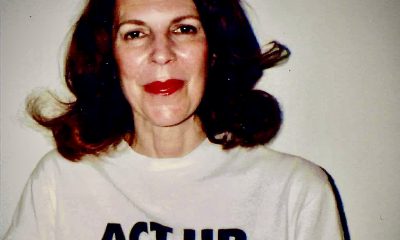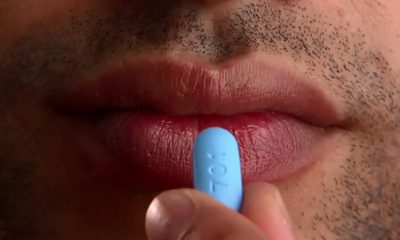District of Columbia
Whitman-Walker facing 40% federal research budget cut
Trump terminates range of health grants related to sexual minorities
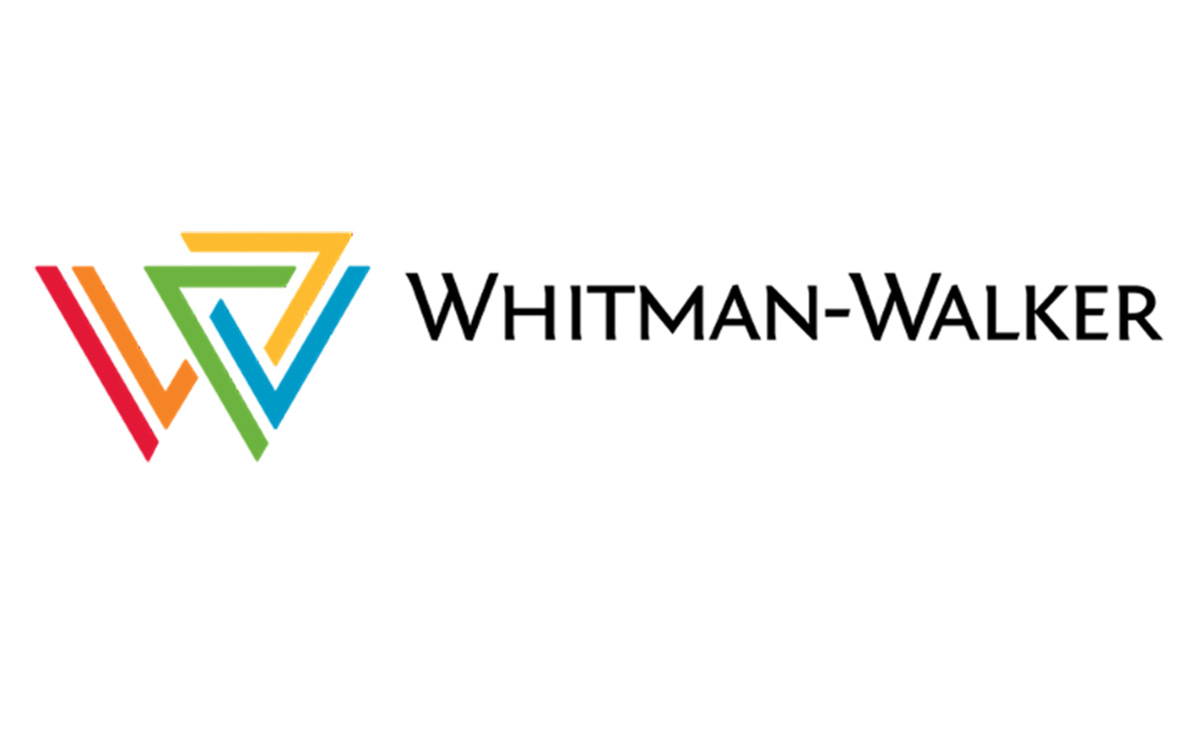
Officials at Whitman-Walker Health revealed that the organization’s Institute for Health Research and Policy is facing a 40 percent cut to its federal funding due to President Trump’s ongoing effort to reduce federal government spending.
The news was announced at a weekend drag brunch fundraiser held at Her Diner.
A spokesperson for Whitman-Walker told the Blade that final numbers of the cuts are not yet available and the full impact of the federal funding loss is not yet clear. The Institute for Health Research & Policy at Whitman-Walker works to advance good health outcomes via research, clinical trials, and evidence-based policy solutions. So it’s fair to assume the cuts will impact research into HIV and cancer treatments.
In related news, last week the U.S. government terminated at least 68 grants to 46 institutions totaling nearly $40 million, according to a report from the AP.
“Most were in some way related to sexual minorities, including research focused on HIV prevention. Other canceled studies centered on cancer, youth suicide and bone health,” AP reported.
Health and Human Services spokesman Andrew Nixon said the agency is “dedicated to restoring our agencies to their tradition of upholding gold-standard, evidence-based science.”
One canceled project at Vanderbilt University was following the health of more than 1,200 LGBTQ people age 50 and older, the AP said.
This is a developing story; the Blade will update this with details on the Whitman-Walker cuts when they are available.
District of Columbia
Trans pride thriving in D.C.’s queer nightlife scene
T4T provides vital space for joy, visibility, resistance
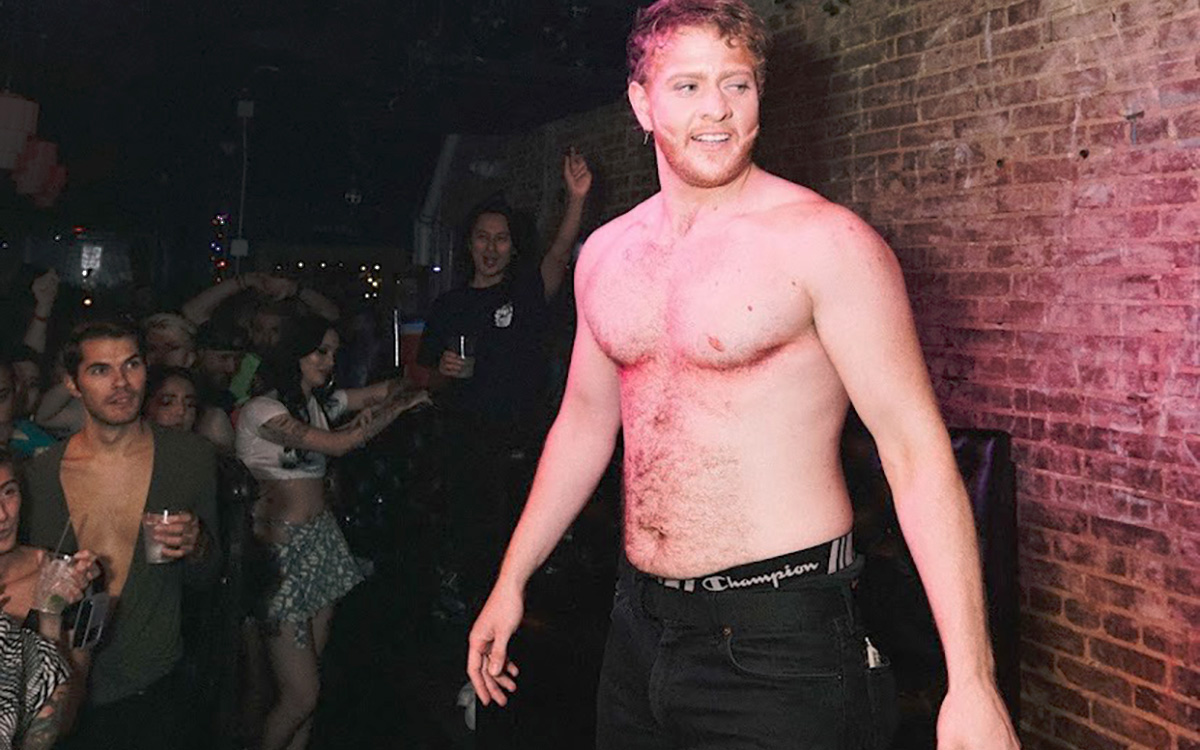
The queer nightlife scene has long provided much needed spaces for connection, resistance, and activism. It’s fitting, then, that in 2025 — a time when the transgender community is bearing the brunt of discriminatory policies at national, state, and local levels — LGBTQ bars remain vital spaces of solace and celebration for a community that too often struggles to find acceptance in public life.
In honor of International Transgender Day of Visibility on Monday, March 31, the Washington Blade spoke with several prominent transgender figures in D.C.’s LGBTQ nightlife scene about their journeys into the industry, how it has shaped them, and why celebrating with other trans people in these spaces is essential to fostering support and protection for the transgender community.
Creating space for trans joy
Samson Russell, security operations manager at Crush Dance Bar on 14th Street, spends most nights scanning IDs and welcoming patrons to one of the busiest LGBTQ bars in the city. But once a month, Russell takes the stage as a DJ at T4T, a trans-centered event at Trade, another LGBTQ bar just down the street.
“I was never really into partying or nightlife,” Russell said. “I wanted to be a part of it, but it just was too intimidating. Once everything shut down [during the pandemic], I realized life is short, and there are more reasons to be involved in nightlife than just wanting to party. It’s about bringing people together.”
Russell’s entry into the nightlife scene was sparked by an Instagram message from DJ Lemz, a Washingtonian DJ known for the queer BENT celebration at the 9:30 Club. That push led Russell to embrace performing, highlighting trans identity in nightlife and using the stage as a platform for visibility.
“I started working the door at Trade maybe a year later, and then immediately wanted to be part of the drag scene,” Russell said. “Getting booked when you don’t have any drag experience is tough, even in a city as accepting as D.C. I wanted to highlight transness as an art form. My first time doing drag was producing my own show at Trade, and two years later, it’s still a monthly event called T4T. Eventually, I learned how to DJ, and three weeks later, I started DJing for T4T. Now, it’s just a mix of different art forms, all rooted in how my transness led me into nightlife.”
Onstage, Russell doesn’t just perform; they embody trans resilience. In some acts, they inject themselves with hormone replacement therapy (HRT) onstage, turning a deeply personal moment into a public declaration of identity.
“I’m not trying to act like I guided anyone into their sense of self, but it’s really cool when someone sees me and feels comfortable enough to talk about transness,” Russell said. “I’ll take off my shirt and show my scars. I’ll put lipstick and blush on them to make sure people see them. My T shot is the climax of my act. I want people just getting started in their transition to see it’s real, it’s happening, and if I can do it in this DIY blue-collar way, then surely they can too.”
Finding community and visibility
T4T isn’t just a performance space, it’s a refuge. Brooke N Hymen, a self-described “trans masc of bimbo experience” drag performer, has taken the stage multiple times at the event and finds it to be a source of validation.
“It’s proving to myself and the community that I belong here,” Hymen said. “It’s a way to showcase my transness and my trans art. Being seen and valued as a trans artist in the city — it’s an affirming feeling.”
The affirming energy of T4T extends beyond the performers. Keaton Paz, a trans employee at Trade, sees the impact firsthand at the door.
“I love getting to be at the door for those events and seeing trans people walk in,” Paz said. “You can see the relief and joy on their faces, like, ‘Oh, there are trans people here working and participating. I know this is going to be a safe space.’ That moment of recognition and safety brings me so much joy. Knowing we’re a second home for so many people, that’s what it’s about.”
For many trans people, LGBTQ bars offer more than just a place to grab a drink. They provide a sense of belonging. Whether through trans-specific events or simply recognizing a trans person behind the bar, these venues create spaces where trans people can exist without fear. The importance of visibility isn’t just about celebration, it’s a reminder that trans people deserve to live openly, loudly and without apology.
The complexity of visibility
“Trans Day of Visibility means living and showing your authentic self,” Hymen said. “It’s about knowing that your identity is valid, even if you’re not happy with your current circumstances. I’m early in my transition, but I think it’s important to be visibly loud and trans for the people who don’t have access to medical care or who are just starting their journeys.”
Paz echoed this, emphasizing that the day is meaningful even for those who are still questioning their identities.
“It’s not just for trans individuals,” Paz said. “It’s for anyone on their own gender journey. Having a day like this is powerful. It lets people see we’re here, we exist. If that visibility is taken away, it’s an attempt to erase us entirely.”
While agreeing with the sentiment, Russell expressed more complicated feelings about the day.
“I’ve got mixed feelings because why is it different from any other day?” Russell said. “While I’m grateful it exists, there are 364 other trans days of visibility in my book. It’s so dandy that cis people think of us every last day of March, but at the end of the day, this is my daily life.”
For Russell, being visible as a trans person in Washington — especially under an administration that is hostile to LGBTQ rights — adds an even deeper layer to their presence in nightlife.
“I’m in the belly of the beast — the capital of the country under this horrible administration,” Russell said. “So what else am I going to do but perform in the most sincere way I can? Specifically to my transness. It’s not just about being a hot man. It’s about knowing where I came from, where we’re at, and what my part is in this fight.”
T4T is held every second Tuesday of the month at Trade, located at 1410 14th St., N.W.
District of Columbia
First D.C. LGBTQ seniors home ready to open
Mary’s House for Older Adults to operate facility for 15 seniors

The first nine residents of Mary’s House For Older Adults, D.C.’s first LGBTQ home for seniors, are expected to move into the newly built group home within the next week or two, according to Mary’s House founder and CEO Imani Woody.
Located at 401 Anacostia Rd., S.E. in the city’s Fort Dupont neighborhood, a write-up on its website says the house includes 15 single-occupancy residential units and more than 5,000 square feet of shared communal living space.
Woody said construction of the three-story house was completed in January and leases have been obtained by the first nine of the 15 residents, with the remaining six still available for interested seniors. She points out that Mary’s House, which is a nonprofit operation, is not an assisted living facility.
A large sign hanging near the top of the front wall of the Mary’s House building says, “Now Leasing! Single Bedroom Communal Living—LGBTQ+ Affirming Housing for Adults 62+”
The sign also includes the Mary’s House phone number and website address that Woody said interested seniors or those who may know a senior who would be interested should use to contact the LGBTQ supportive seniors residence.
Woody said each of the individual units or suites includes a sleeping area, living room, bathroom, and kitchenette with a sink, microwave, and refrigerator but no stove. According to the Mary’s House website, the shared communal areas of the house include a “fully equipped kitchen, separate dining area and living room.”
It says the communal area also includes a computer room, arts and crafts room, an exercise room, laundry facilities, community meeting space for gatherings, a “tranquil quiet room for relaxation,” and an outdoor terrace with seating.
Woody said the monthly rent for Mary’s House residents, depending on their income, is currently set at $812 or $886.
“Our mission extends beyond providing housing,” a statement on the Mary’s House website says. “We strive to build welcoming communities that address affordability, accessibility, and the unique needs of LGBTQ/SGL [Same Gender Loving] older adults.”
The statement adds, “Through health and wellness programs, connections to community services, and advocacy efforts, Mary’s House for Older Adults endeavors to ensure that all elders, regardless of identity, can enjoy fulfilling and secure lives in their golden years.”
Woody said a ribbon-cutting ceremony to celebrate the opening, to be led by D.C. Mayor Muriel Bowser is planned for early May, with a specific date to be announced soon.
Further information about Mary’s House, including a lease application, can be obtained at MarysHouseDC.org or at 240-972-2500.
District of Columbia
DC Trans Picnics event brings trans community together
Allied groups participated in March 22 gathering in Malcolm X Park

DC Trans Picnics on March 22 held a gathering in Malcolm X Park to celebrate joy and networking in the city’s transgender community ahead of Transgender Day of Visibility.
DC Trans Picnics is a collective known for offering space for trans and gender nonconforming members of the local queer community to spend time with and connect with one another. The March 22 event was geared specifically to BIPOC (Black, Indigenous, and People of Color) individuals to help them connect with those of similar and different cultures, but anyone was allowed to come and celebrate if invited.
The gathering itself was not just one of sharing food, laughs, games and music, but a bolstering of the network of organizations, resources, and collectives in the community.
One of the volunteers for the event gave the Washington Blade a statement about some of the resources DC Trans Picnics offers in order to help as many trans people as possible. These efforts specifically target trans women who are early in their transition by connecting them with organizations that help people who are at risk of homelessness, voice training resources, and message boards with information about other resources.
Another event volunteer was a member of the Metro DC DSA, a group founded on achieving bodily autonomy and reproductive justice for queer and trans people in the DMV.
“It’s still TDOV, but it’s Trans Day vision instead of visibility.” the volunteer told the Blade. “The idea with that one is that trans people have a hypervisibility right now. Like nobody hasn’t heard of trans people or like, doesn’t know, not trans people.”
“That’s not the problem. The problem is that people don’t know the problem is they can’t see us. We’re trying to get the focus on instead of being seen, it’s about seeing trans people’s vision and like and shifting the perspective from like, instead of looking at us to looking with us.”
The Trans Day of Vision is taking place on Sunday, the day before Trans Day of Visibility.
Metro DC DSA is holding the event at Malcolm X Park. The group received permission to alter and use the TDOV acronym from Rachel Crandall, who founded the Trans Day of Visibility.
“Trans people actually have something unique to contribute,” the Metro DC USA volunteer said. “Our vision as a society and where we think we’re going and that trans people just because of our lived experiences, we know how to take the situation as it seems to be and say I don’t want that. There is so much need, demand, energy, and enthusiasm for change in our society, and trans people know what that feels like to know that they feel like things have to change.”
Other groups aside from Metro DC USA attended the event in solidarity. They include Lavender Evolutions, a BIPOC group focused on expanding their work from helping lesbian community members to supporting trans and nonconforming people in the area.
“This inclusionary event has encouraged queer and trans POC to come out and celebrate together.” said a Lavender Evolutions member.
The group aims to continue to work with DC Trans Picnics to help bring more events that promote unity for BIPOC members of the community to avoid any whitewashing in the future.
Another group that participated is the DC Area Transmasculine Society or DCATS, a support network that aims to provide transmasculine people in the D.C. area with resources about which they may otherwise not know in this political climate. Apart from providing binders, resources on homelessness, mutual aid networks, and other beneficial services, DCATS was taking any and all recommendations for resources that would benefit transmasculine people.
DC Trans Picnics can be found on Instagram at @dctranspicnics.
-
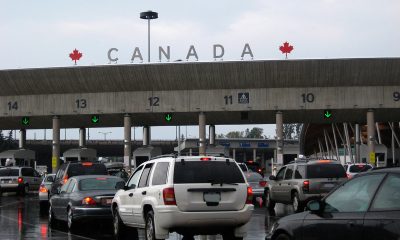
 Opinions3 days ago
Opinions3 days agoFinding the courage to flee U.S. to save my trans daughter
-
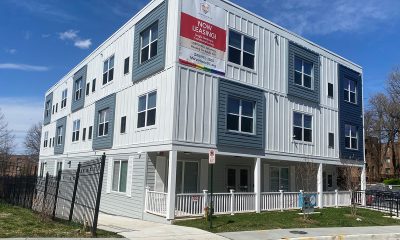
 District of Columbia3 days ago
District of Columbia3 days agoFirst D.C. LGBTQ seniors home ready to open
-
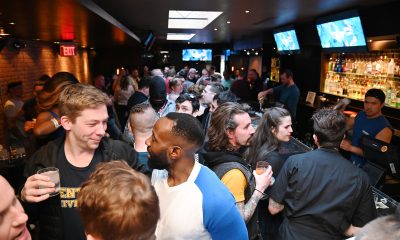
 District of Columbia4 days ago
District of Columbia4 days agoD.C. queer bar owners sound alarm on WorldPride security concerns
-

 Sponsored4 days ago
Sponsored4 days agoExploring the world of 99Bitcoins and the impact of Telegram Bots on cryptocurrency education

